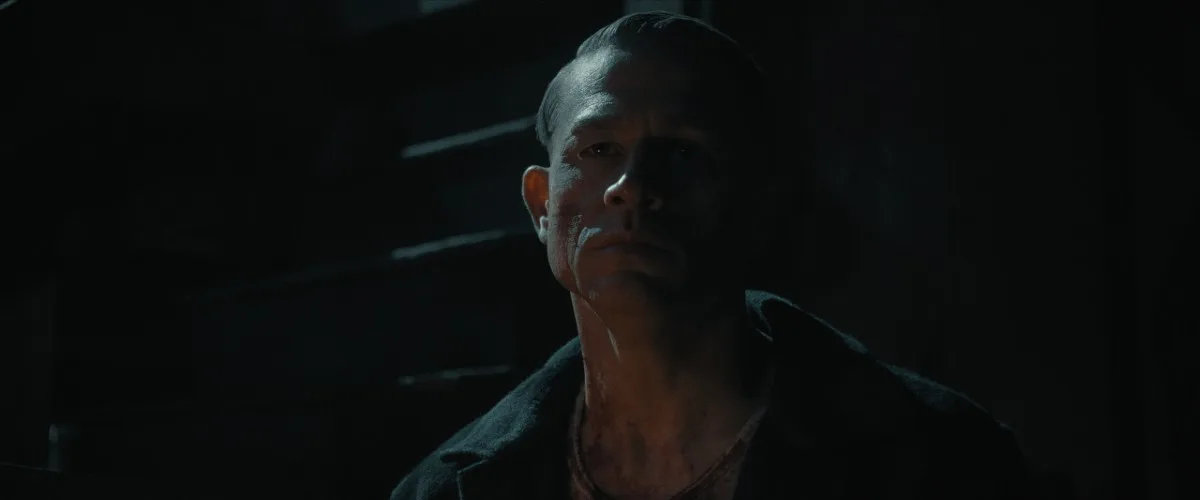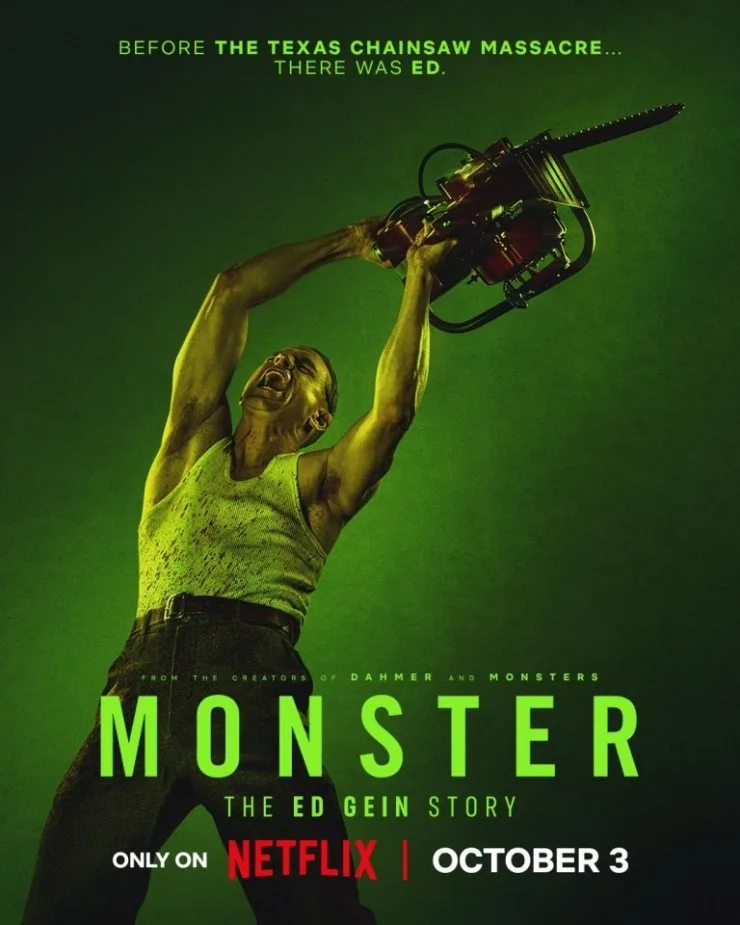To say that “Monster: The Ed Gein Story” is one of the most unfocused of Ryan Murphy’s productions is quite a thing indeed. A wildly inconsistent but often ambitious TV creator, Murphy has become more and more obsessed with warping history to his dramatic will in projects like “American Crime Story” and the previous two iterations of “Monster,” smash hits for Netflix about Jeffrey Dahmer and the Menendez Brothers. In one sense, telling the story of someone whose crimes have already been warped through pop culture filters like the one that Murphy uses feels like the perfect match of creator and subject. After all, Ed Gein inspired Norman Bates (“Psycho”), Leatherface (“The Texas Chain Saw Massacre”), Buffalo Bill (“The Silence of the Lambs”), and many more. And none of those “versions” of Gein recreate his crimes exactly, turning them into new visions of horror. The idea of making a “Monster” about how violence ripples through pop culture, changing form as it moves, is admirably ambitious, but just out of the reach of writer Ian Brennan and director Max Winkler, who flirt with interesting themes and commentary but are really just more interested in the gross stuff. And there’s so much gross stuff.
Charlie Hunnam plays Ed Gein as a soft-spoken simpleton, swallowing words in a high-pitched affect that’s always distracting and never believable. A talented performer in the right material, he’s a circus side show of a character here, someone the writers prod and poke without ever trying to consider as a human being, even though they eventually get around to demanding that we do. In one sense, that’s understandable given the unrelatable atrocities that Gein committed, but we spend so much time with this non-character and are even asked to empathize with his mental breakthroughs at a hospital in later episodes that the black hole at the center of this show becomes a major problem. He says in episode seven, “I don’t know who I am or why I do the things that I do,” and so maybe that inconsistency around this character is intentional, but it leaves almost nothing to hold onto, turning “Monster” into a study of Gein’s impact and imagination more than his reality.
In the premiere, we meet Ed’s mother Augusta (Laurie Metcalf), who Gein would try to essentially bring back to life after her passing left him alone. The show purports with very little basis in fact that Ed was inspired by a friend named Adeline Watkins (Suzanna Son), who was obsessed with true crime and gave him a comic book about “The Bitch of Buchenwald,” Ilse Koch (Vicky Krieps). She allegedly turned Holocaust victims into things like lampshades, inspiring Gein to do the same, although he will say later in the series that he was “just searching for his mother” while he did things like turn human skulls into cereal bowls.
From the beginning, “Monster” turns every rumor about Gein into truth. Yes, he killed his brother Henry and committed every other crime he was rumored to be connected to, including the disappearances of a local babysitter and missing hunters. What we know to be true is that Gein became a graverobber at the nearby cemetery in Plainfield, filling his house with body parts and fashioning himself a suit made of skin that he could step into. He confessed to killing two women—Mary Hogan & Bernice Worden—likely because they looked like his mother, although the show imagines a sexual encounter with the latter, played by Lesley Manville. Worden’s body was found in his barn, trussed up like a deer. Hogan’s head was found in his house.
“The Ed Gein Story” explicitly recounts and recreates the crimes of Gein in ways that feel shallow and useless, but it doesn’t stop there. The show’s most interesting ideas come when Brennan and company try to say something about Gein’s influence, even casting Tom Hollander as Alfred Hitchcock and Joey Pollari as Anthony Perkins for scenes about the production of “Psycho.” Here’s where “Monster” starts to reveal its broken hand. The connection from World War II to Plainfield to Bates to Leatherface to Buffalo Bill to serial killers like Jerry Brudos & Richard Speck is culturally fascinating, but “Monster” has nothing to say about this legacy of torture and violence. It’s connecting dots with crayons. These true and imagined men have all been warped by upbringing, childhood violence, and mental instability, and that has altered the landscape of pop culture in a way that we can’t fully understand, and that the show seems content to pay lip service to without going any further.
As we’ve come to expect with “Monster,” nothing is off limits. Gein claimed that he never had sex with his victims or the bodies he dug up, but the truly grotesque fifth episode refutes that. The show seems to revel and linger in the disturbing, even taking the infamous shower scene from “Psycho” and reshooting it with Son’s Adeline and Hunnam’s Ed but going the places that Hitch never went to with graphic violence and nudity. What is the point of re-creating such a landscape-shifting moment in culture but doing so with a Netflix 2025 degree of “adults only” shots? Is it a commentary or just provocation? It feels like a question that was never asked or answered.
By the time Ed is singing along to “I Enjoy Being a Girl” in his bra and panties in a mental facility, all the potential thematic exploration has been cast aside for clips that people can shockingly share on social media. It feels like there’s a version of “Monster: The Ed Gein Story” that uses the true story of the Butcher of Plainfield as a funhouse mirror to our current obsession with extreme violence and stories of true crime, along with how we deal with mental illness and sexual identity. When geniuses like Alfred Hitchcock, Tobe Hooper, and Jonathan Demme looked at the legacy of Ed Gein they saw a way to reflect different aspects of the world at the time those films were made. It’s just too bad this one is content to wear the skin of projects like those without having any sign of a heartbeat.
Whole series screened for review. Now on Netflix.




















